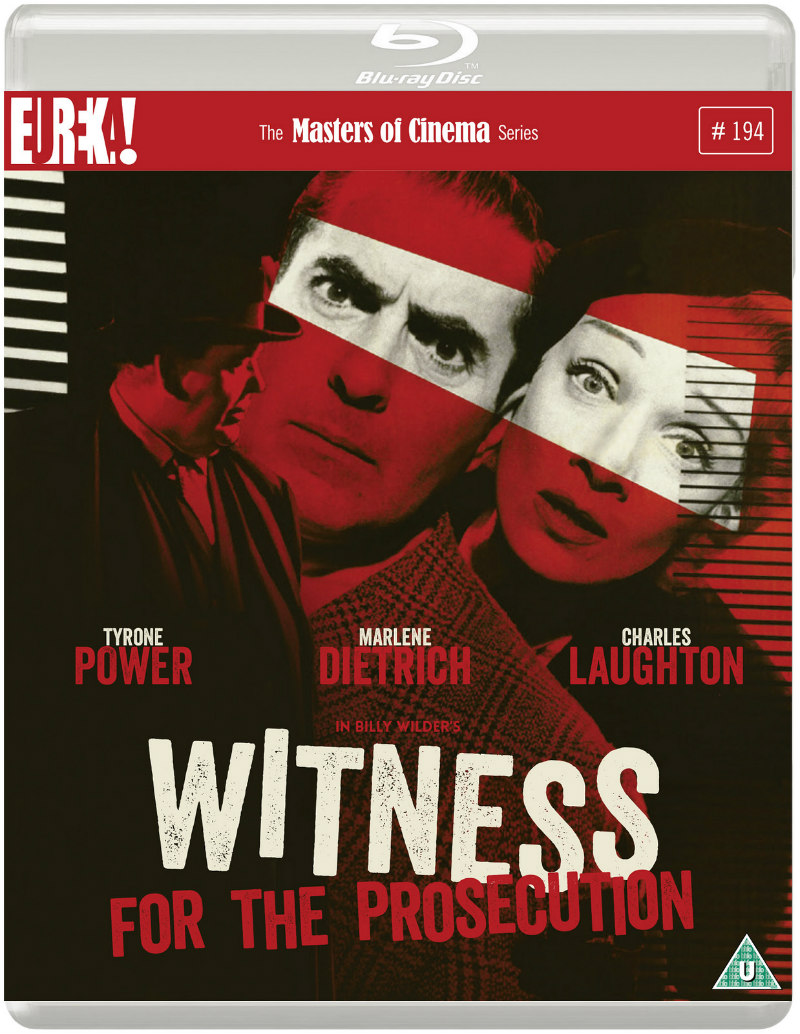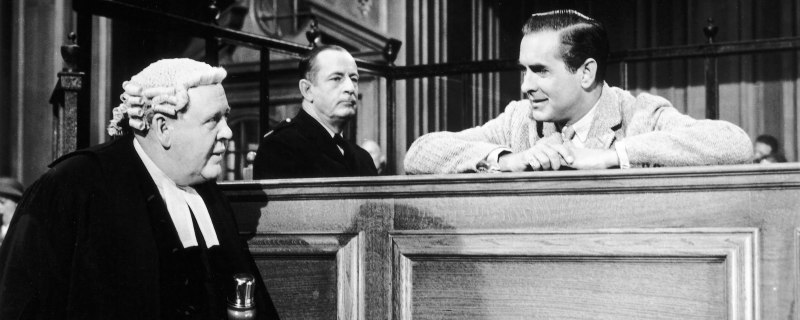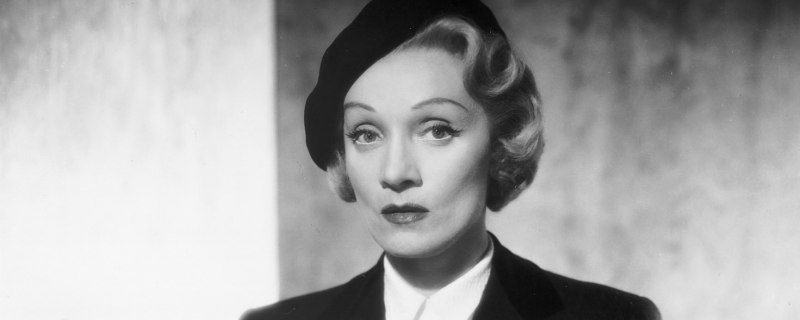
Review by Eric Hillis
Directed by: Billy Wilder
Starring: Marlene Dietrich, Tyrone Power, Charles Laughton, Elsa Lanchester, John Williams

Few writers have seen their work adapted for the screen as often as the grand old dame of crime fiction, Agatha Christie. She was rarely impressed by the results however, but one movie stamped with the Christie seal of approval was Billy Wilder's 1957 adaptation of Witness for the Prosecution, which had begun life as a short story before Christie adapted it into a hit stage play. In a letter to Wilder, Christie wrote: "I enjoyed it - a thing I never suspected to when seeing a film made from one of my books."
Wilder was approached to direct the film by its subsequent female lead, Marlene Dietrich, who had become besotted with the work after seeing a production of the play. Wilder was hesitant as he viewed Christie as a great story constructionist but found her work otherwise flat and stuffy. Co-writing with veteran screenwriter Harry Kurnitz, Wilder injected his trademark wit into the courtroom drama, and it's hard to imagine the film being as engrossing without the great dialogue and subtle visual flavour Wilder brings to Christie's tale.

The setting is London in the early 1950s, with the city still in the process of piecing itself back together after the damage of the Blitz. An establishing shot of the Old Bailey shows the statue of justice surrounded by ladders and scaffolding, a visual representation of the film's main character, Sir Wilfrid Robarts (Charles Laughton), a renowned barrister who has just been freed from his hospital bed and is now accompanied by a nagging nurse, Miss Plimsoll (Elsa Lanchester). Like the city around him, he's determined to get back to business.
Despite his doctors' orders to rest up, Robarts takes on a case, and a damn near unwinnable one at that. Expat American soldier turned wastrel Leonard Vole (Tyrone Power) finds himself accused of the murder of Emily French (Norma Varden), a wealthy widow whom he had befriended with the goal of obtaining a loan to fund the revolutionary eggbeater he claims to have invented. All the evidence points to Vole's guilt, and with French readjusting her will to leave him the sum of $80,000, he certainly has a strong motive. Robarts believes him innocent however, and Vole swears he can count on his loving wife Christine (Dietrich) to provide an alibi.
When Robarts meets with Christine he is shocked to find she is far from the adoring spouse Vole led him to expect. Convinced Vole was engaged in an affair with the victim, Christine nonetheless provides an alibi. But the revelation that her marriage to Vole is a sham, as she was previously wed back in Germany, means she can be called to testify against her husband. Thus, Robarts finds himself faced with the toughest case of his career.

With Witness for the Prosecution, Wilder offers a masterclass in how to adapt a stage play to the screen, focussing in on the sort of minute, visual details a theatrical setting can't provide. The use of props to build characters is exquisite, from the shot glass Vole hides when a brawl breaks out in the bar he first finds Christine performing at, to the various bric a brac Robarts appropriates as a way of concealing his heavy drinking and cigar smoking from his nurse's prying eyes. Cleverest of all is Robarts' monocle, the eye-glass doubling as an interrogator's lamp when he uses its glare to blind those he cross-examines. This small object comes to define two other characters by their reactions to its sneaky use. When Robarts tries out the trick on Vole, the accused man is made uncomfortable by it. Christine however, immediately sees through it, calling Robarts' bluff by drawing a blind to remove the offending beam of light. In the movie's dramatic final moments, the monocle once again comes into use, but to a far more sinister end.
For a movie penned by an Austrian and an American, Witness for the Prosecution nails the unique eccentricities of the British upper middle classes. Laughton's Robarts is such an engaging character you'll wish a whole series had been developed around him. The actor is clearly having a blast, providing many laughs without ever derailing the thriller aspect of Christie's story. His bickering relationship with his offscreen wife Lanchester provides the film with its heart, and also with one of Wilder's trademark wonderful closing lines.

It's in the film's final scenes however that it loses much of its power, thanks to a twist that relies upon a hammy cameo by a character in Lon Chaney-esque facial prosthetics. The make-up is at once too sophisticated for us to believe the character could have applied it themselves, and too over the top for Robarts to not immediately see through it. Lose this offending device and the twist is otherwise quite impressive.
Three years before Hitchcock demanded audiences not give away Psycho's twist, Wilder's film ends with a plea from "the management of this theatre" not to spoil the ending for anyone yet to see the film. Whether you can telegraph it or not, the twist, while effective, is one of the least interesting parts of a film that constantly delights with its character observations, and which gives Laughton one of the most charming roles of his distinguished career.

Extras:
Feature commentary by critic Kat Ellinger; Simon Callow discusses Laughton's role; film scholar Neil Sinyard dissects the film; archive discussion between Wilder and Volker Schlondorff; booklet featuring writing by Philip Kemp and Henry Miller, and a reproduction of Christie's letter to Wilder.

Witness for the Prosecution is on blu-ray September 10th from Eureka Masters of Cinema.
